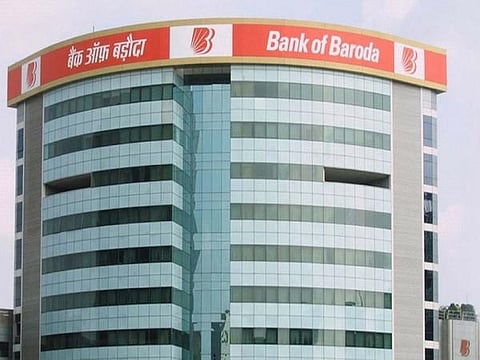

The Reserve Bank has lifted the six-month-old ban it imposed on the second largest public sector lender Bank of Baroda from on-boarding new customers through its mobile app citing regulatory breaches and weak security systems.
The Reserve Bank had in October 2023 ordered Bank of Baroda to immediately stop on-boarding new customers through its mobile app Bob World.
In an exchange filing, the bank said, "The Reserve Bank, vide a letter dated May 8, conveyed to us its decision to lift the restrictions on Bob World with immediate effect. As such the bank is free to onboard customers through this app in accordance with the applicable guidelines and extant regulations.”
Accordingly, the statement further said the bank will now resume on-boarding new customers through the app.
The RBI action came after it was reportedly found that last July some BoB officials linked bank accounts to unrelated mobile numbers to achieve their sales on-boarding targets mainly in the Bhopal zone. The bank launched the app in late 2021 and the management reportedly set a stiff target for its sales staff.
Later, media reports said that bank employees in Madhya Pradesh, Uttar Pradesh, Rajasthan, Gujarat and Jharkhand also adopted the same modus operandi adopted by the Bhopal zone employees to achieve the targets.
When the news came out, the bank issued a statement denying any wrongdoing saying the use of unauthenticated mobile numbers for boosting app registrations is not possible as one mobile number can be counted with only one mobile app at any point in time. The bank targets only active users who can get on-boarded only through the system controls in place, rather than mobile app downloads or registrations, it said.
However, later when the RBI imposed the curbs, it claimed that it has adopted corrective measures to address the concerns highlighted by the regulator, and would take further steps to plug any remaining gaps.
It may be noted that since the pandemic, the RBI has been focusing a lot on the risk management systems of banks and other regulated entities, as with the pandemic driven lockdowns, most payments went online, leading to increased stress on their payments and settlement infrastructure. The first to be hit with the regulatory hardball was HDFC Bank in December 2020 when it ordered the largest credit card issuer to stop issuing new cards.
Then last year it asked Bajaj Finance to stop acquiring new customers through its mobile app and later at the end of January, it ordered Paytm Payments Bank to virtually shut shop for breaching many regulatory firewalls. Then came the order on IIFL to stop new gold loans and JM Financial to cease lending against shares and finally late last month ordering Kotak Mahindra Bank to forthwith stop issuing credit cards as well as putting a ban on acquiring customers through any of its digital channels as well as through the mobile app.